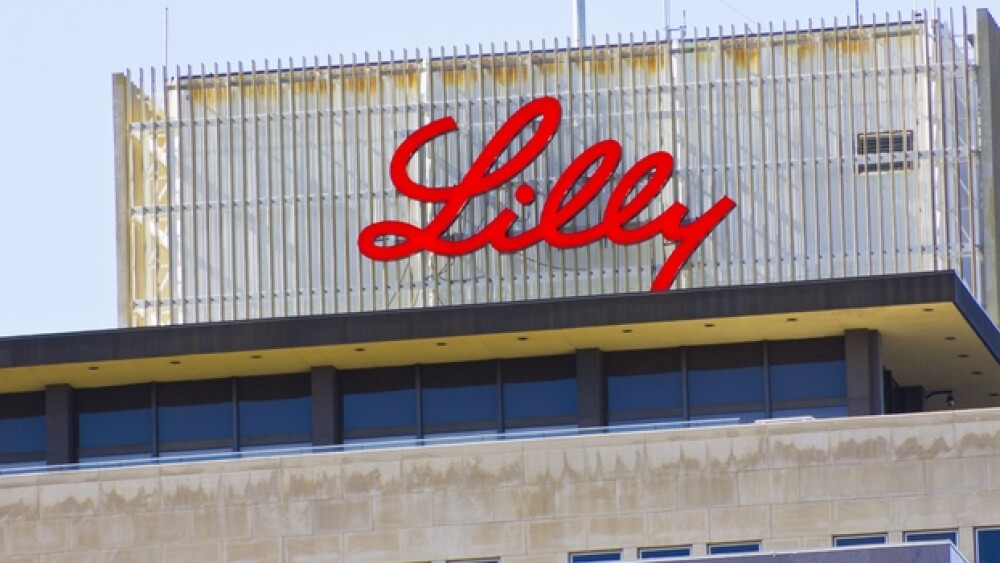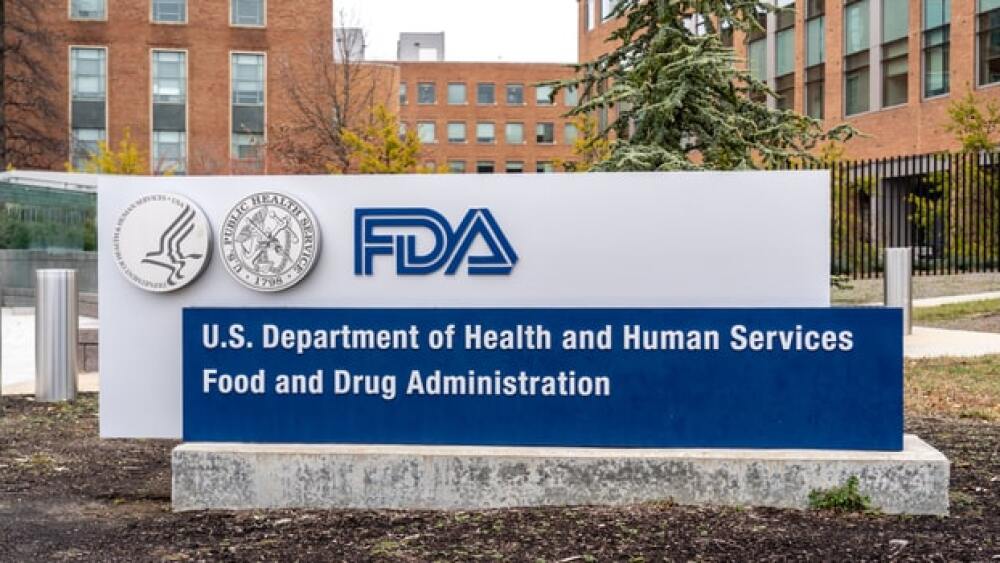Eli Lilly announced that it is pausing its clinical trial of a combination antibody against COVID-19 over safety concerns. Typically, this would be because a patient or volunteer showed a serious side effect or became sick, but the company did not clarify what the reason for the pause is.
Jonathan Weiss / Shutterstock
Eli Lilly announced that it is pausing its clinical trial of a combination antibody against COVID-19 over safety concerns. Typically, this would be because a patient or volunteer showed a serious side effect or became sick, but the company did not clarify what the reason for the pause is. The pause appears to refer to the ACTIV-3 clinical trial.
“Safety is of the utmost importance to Lilly,” the company told CNN by email. An independent Data Safety Monitoring Board (DSMB) has recommended the pause.
The company added, “The trial, evaluating Lilly’s investigational neutralizing antibody as a treatment for COVID-19 in hospitalized patients, is sponsored by the National Institute of Allergy and Infectious Diseases (NIAID), part of the National Institutes of Health (NIH). Lilly is supportive of the decision by the independent DSMB to cautiously ensure the safety of the patients participating in this study.”
On September 16, Eli Lilly announced interim proof-of-concept data from its BLAZE-1 Phase II trial of LY-COV555, its neutralizing antibodies, singly or in combination against COVID-19. That study enrolled mild-to-moderate COVID-19 patients who had recently been diagnosed in the outpatient setting and received either placebo, 700 mg, 2800 mg and 7000 mg of the antibody.
In the trial, the cocktail reduced viral load, symptoms and COVID-related hospitalization and ER visits. The trial was of LY-CoV555 and LY-CoV016, which bind different but complementary regions of the SARS-CoV-2 spike protein. The combination cohort enrolled recently diagnosed patients with mild-to-moderate COVID-19. These patients received either 2800 mg of each antibody or placebo.
As of October 7, when Lilly updated news on the antibody programs, the company said, “Combination therapy has been generally well tolerated with no drug-related serious adverse events. In LY-COV555 monotherapy studies there have been isolated drug-related infusion reactions or hypersensitivity that were generally mild (two reported as serious infusion reactions, all patients recovered). Treatment emergent adverse events were comparable to placebo for both LY-CoV555 monotherapy and combination therapy.”
Today’s announcement would suggest that the DSMB saw something in the data to require a pause. It’s important to note that a trial pause is different than a clinical hold, with a clinical hold being a formal regulatory order that typically lasts longer. Pauses are very common in clinical trials, normally, but because of the heightened attention being paid to therapeutics and vaccines against COVID-19, are being made public.
Yesterday, Johnson & Johnson paused its clinical trial of its COVID-19 vaccine due to “an unexplained illness in a study participant” as well. J&J began its Phase III trial of JNJ-78436735 on September 23. The vaccine was developed by J&J’s Janssen Pharmaceutical Companies using its AdVac technology platform, which was also used to develop Janssen’s Ebola vaccine that was approved in Europe and to develop its Zika, RSV, and HIV vaccine candidates. The Phase III ENSEMBLE trial will evaluate the vaccine’s safety and efficacy compared to placebo in up to 60,000 adults ages 18 and older. It is enrolling volunteers in the U.S., Argentina, Brazil, Chile, Colombia, Mexico, Peru and South Africa.
J&J did not disclose much information about the unexplained illness, stating, “We must respect this participant’s privacy. We’re also learning more about this participant’s illness, and it’s important to have all the facts before we share additional information.”
The company also emphasized that adverse events are part of most clinical trials and that this is a “study pause” instead of a “clinical hold,” which is a formal regulatory action. A “clinical hold” can last much longer than a “study pause.” Normally, J&J indicated they would not announce study pauses to the public, but due to the overwhelming interest in the study and the urgency involved because of the COVID-19 pandemic, felt the need to release the information.
Eli Lilly and NIAID’s ACTIV-3 study was to begin evaluating LY-CoV555. The antibody was discovered by Abcellera Biologics in collaboration with NIAID’s Vaccine Research Center. It was then developed and manufactured by Lilly Research Laboratories in partnership with AbCellera.
ACTIV-3 is also testing the monoclonal antibody in combination with Gilead Sciences’ remdesivir.
It is also being evaluated in another ongoing NIAID trial, ACTIV-2, which is studying its safety and efficacy in people with mild to moderate symptoms of COVID-19 who have not been hospitalized. The DSMB has access to shared data across both studies.
Antibody therapies have been front-and-center since President Trump was treated with Regeneron Pharmaceuticals’ antibody cocktail, which Trump touted as a “cure.” Trump has previously promoted Eli Lilly’s treatments as well as others.
On October 8, Regeneron applied to the U.S. Food and Drug Administration (FDA) for Emergency Use Authorization (EUA) for its antibody cocktail. Around the same day, Eli Lilly reported it had submitted its EUA request for a EUA for LY-COV555 as a monotherapy to the FDA. At that time, it said it believed it could supply up to 100,000 doses by the end of October and up to 1 million by next year.
At the time, Lilly stated, “We expect to submit a subsequent request for EUA for combination therapy in November, pending the clinical trial enrollment, once additional safety data accumulate, and sufficient supply is manufactured.”
It is not yet clear if today’s pause will affect either the initial EUA application or the timeline for the subsequent combination EUA request.





